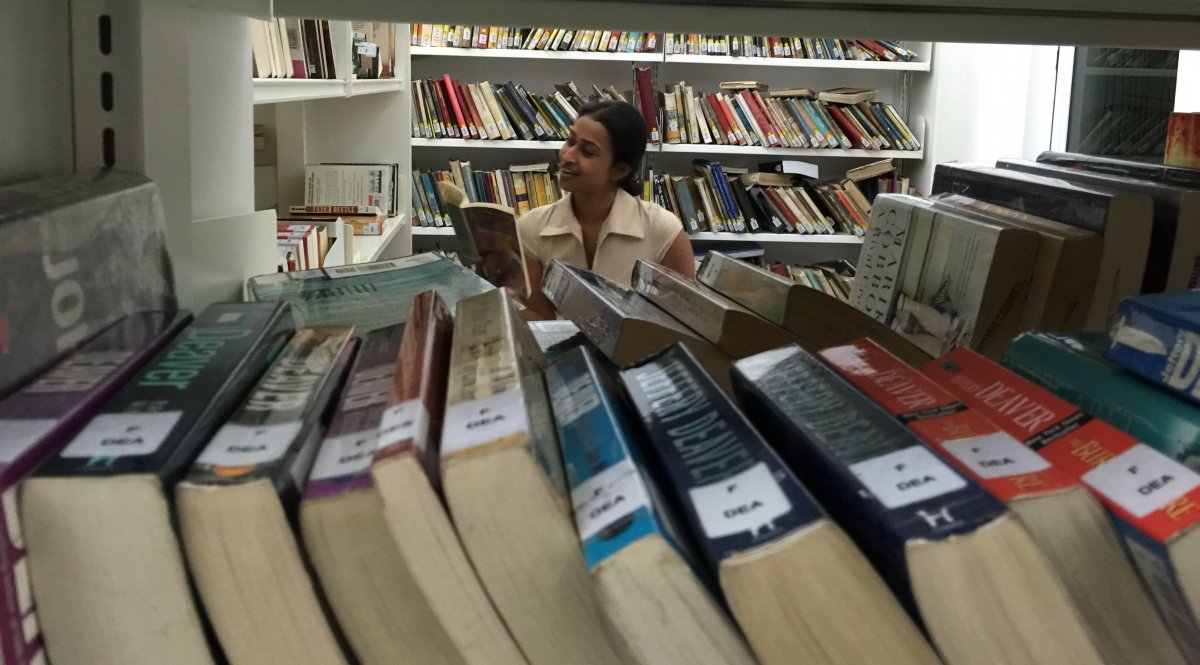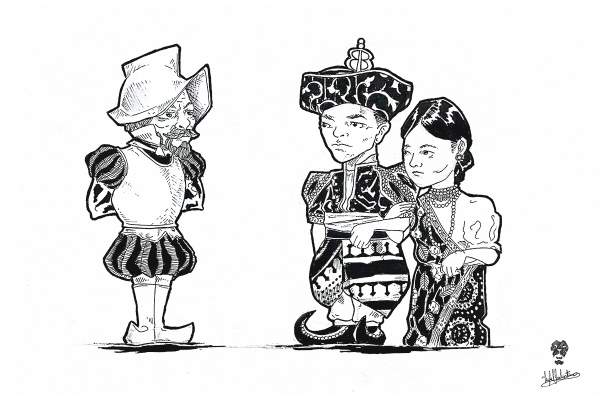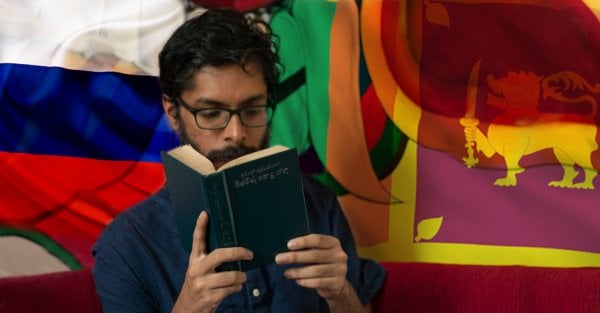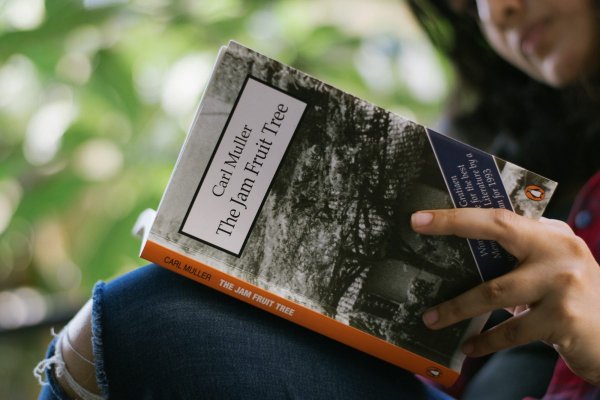
A small crowd of people is milling around a deserted library. Disembodied voices float up from between the bookshelves- people reading different snippets of text aloud. At first it’s chaotic, until you manage to filter out the white noise.
This is part of OverWrite, a play on challenged literature that was held at the British Council library recently.
OverWrite was staged by Floating Space, and was born out of the idea of reading banned books aloud- breaking the silence on forbidden words. From this the scope was widened to include all challenged books which had their existence threatened in some way.
Each member of the audience had a coloured ribbon tied around their wrist, and had to follow a different actor around the library. The excerpts read covered a range of topics, from the end of the war to sexuality. The common thread was not just that the books had been censored in some way, but that the subjects they dealt with were taboo.
The highlight of the excerpts was a playful mixture of Alice in Wonderland and a book dealing with the elusive female orgasm- taking on a hush-hush subject in a deft and humorous manner.
The most interesting and controversial part of the production, however, came right at the end. The actors came together to talk about how people over the years had tried to quell the written word by burning books. Yet the very act of burning a book was acknowledging its power, they said. After this section, audience members were led downstairs, handed a book, and asked to set it alight in a barrel. Many audience members did, some with glee. Some tried to save one or two of the books, particularly the older ones, or the ones with handwritten dedications.
Yet all the audience collectively stood by and watched, not doing too much to stop what was going on. This was ultimately the most interesting point OverWrite made by handing the baton of responsibility over to the audience. In a sense, the audience had to make a choice… and many took the easy way out.
OverWrite left the audience feeling uncomfortable, which possibly it set out to do. Perhaps, the message was a little clouded by trying to take on too many myriad subjects. The section on the end of the war for instance, felt a little tacked-on, and stood apart from the more personal taboos that were addressed. Yet there’s no doubt that it left many in the audience with plenty to debate on- as the lively question and answer session on the last day showed. This is the mark of a successful production.
Pictures courtesy Floating Space



.jpg?w=600)






